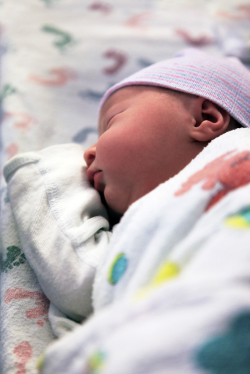Top Class Actions’s website and social media posts use affiliate links. If you make a purchase using such links, we may receive a commission, but it will not result in any additional charges to you. Please review our Affiliate Link Disclosure for more information.

These feelings make the individual experience an uncontrollable urge to move their legs. Moving the legs can help these feelings go away, but they often wake up the person to the point that it is difficult to go back to sleep.
No single medication works for everyone with restless legs syndrome. A drug that relieves one person’s restless legs may actually make another’s symptoms worse.
One drug, Neurontin, is a treatment option for pregnant women who suffer from RLS. But it comes potential side effects, such as the risk of Neurontin birth defects.
When a pregnant woman suffers from RLS, she may want to treat the condition with medication after exhausting all efforts. However, this epilepsy medication may also affect her baby in the form of severe congenital birth defects.
While newer antiseizure drugs like Neurontin are believed to be less likely to cause birth defects, they remain under investigation.
Birth defects which may be caused by the use of Neurontin during pregnancy include:
- Gastrointestinal defects
- Cleft lip and cleft palate
- Heart defects
- Nervous system defects
- Reproductive system defects
In Neurontin birth defect lawsuits, many women claim that they would have made different decisions about treating pregnancy issues such as RLS had they known of the birth defects linked to this drug. If you believe you could be entitled to compensation for medical expenses, suffering, and other damages you have incurred due to a birth defect caused by Neurontin, you may want to consider filing a Neurontin birth defect lawsuit.
Restless Legs Syndrome
Restless legs syndrome (RLS) is a recognized neurological disorder that can interfere with resting or falling asleep. If you have restless legs syndrome, a typical night might go like this: You lie down in bed, ready to go to sleep, and just as your body begins to relax, an uncomfortable sensation begins to overwhelm your legs.
You try to ignore the crawling, tingling, or itching in your legs, hoping it will go away, but it only gets worse. You toss and turn for a while, but eventually the urge to move is too much. You get out of bed to stretch and pace the floor and, for a moment, you find relief. But when you lie down again, the restless sensations in your legs start all over again.
Experts believe that restless legs syndrome is caused by an imbalance of dopamine, a chemical that transmits signals between nerve cells in the brain. Restless legs syndrome is usually genetic — about 60 percent of people with restless legs have a family member with the condition.
Although anyone can have restless legs syndrome, it is more common in older adults and women. About 40 percent of mothers experience temporary restless legs syndrome during pregnancy. Health conditions such as diabetes, iron deficiency, rheumatoid arthritis, and kidney failure can also trigger restless legs syndrome.
Treating RLS During Pregnancy
Dealing with restless legs syndrome during pregnancy means knowing how to manage situations where you must be still. The following tips and tricks could help you control RLS during pregnancy so it doesn’t control you.
- Sleep better by sticking to a regular sleep schedule.
- Exercise in moderation.
- Consider dietary supplements such as folic acid.
- Try practicing relaxation techniques such as yoga and meditation.
Do YOU have a legal claim? Fill out the form on this page now for a free, immediate, and confidential case evaluation. The birth defect attorneys who work with Top Class Actions will contact you if you qualify to let you know if an individual Neurontin lawsuit or Neurontin class action lawsuit is best for you. [In general, Neurontin lawsuits are filed individually by each plaintiff and are not class actions.] Hurry — statutes of limitations may apply.
Get Help – It’s Free
Join a Free Neurontin Birth Defects Lawsuit Investigation
If you or someone you know took Neurontin (gabapentin) while pregnant and had a baby with a birth defect, you or this person may have a legal claim. See if you qualify by filling out the short form below.
A Neurontin birth defect attorney will contact you if you qualify to discuss the details of your potential case at no charge to you.
Oops! We could not locate your form.
ATTORNEY ADVERTISING
Top Class Actions is a Proud Member of the American Bar Association
LEGAL INFORMATION IS NOT LEGAL ADVICE
Top Class Actions Legal Statement
©2008 – 2024 Top Class Actions® LLC
Various Trademarks held by their respective owners
This website is not intended for viewing or usage by European Union citizens.












